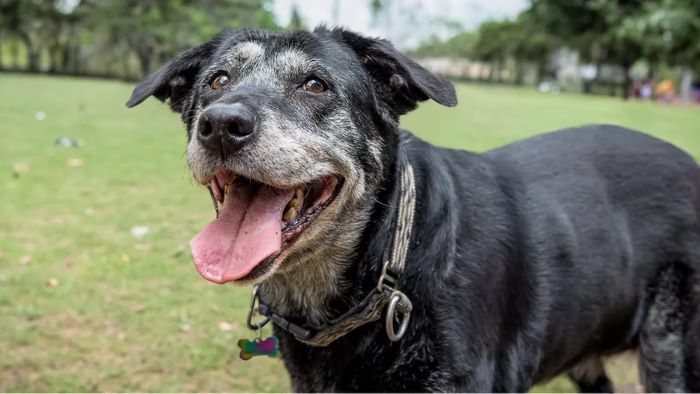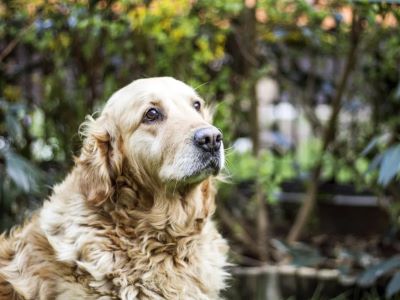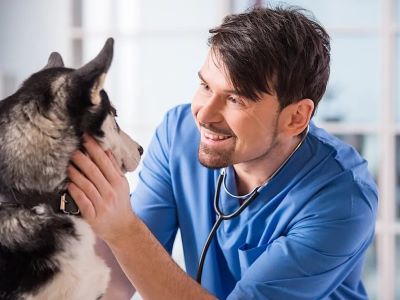Being a paw parent is not easy, you see your dog grow from puppy to senior old dog. The most difficult phase of a dog’s ageing is the old age. A senior dog tends to suffer from various issues, which might make them restless. This issue can make you wonder, “Why is my senior dog restless at night all of a sudden”.
Through our blog, we will provide you with all the required information about why is your senior dog restless. We will also guide you about thee ways through which you can provide your dog relief.

Why Is My Senior Dog Restless at Night All of a Sudden
Here are the reasons why your senior dog[1] might be restless at night all of a sudden:
Arthritis
Arthritis is a common joint problem that affects mostly the senior dog who is ageing. In arthritis, the dog’s cartilage starts to wear out, this causes pain in dogs and makes their joints stiff. With time the issue just gets worse and leads to discomfort due to the constant friction of the bones.
This pain and discomfort make the dog restless and they growl in pain. The restlessness occurs when the dog in pain tries to seek comfort and is not getting it.
Musculoskeletal Problem
Musculoskeletal issues in a dog is a condition that affects the dog’s bones, muscles and connective tissues. These musculoskeletal problems are of 3 types:
- Muscle atrophy: As the dog grows old their activities get reduced as compared to before. This decrease in movement leads to the loss of muscles further worsening the situation.
- Degenerative spinal condition: In this condition due to back pain the dog’s movement is affected causing them pain.
- Ligament issues: Degeneration of ligaments in dogs can cause them serious issues like ACL. The conditions like this are for a lifetime and hamper the dog’s life quality adversely.
Canine Cognitive Dysfunction
Similar to Alzheimer’s canine cognitive dysfunction (CCD) affects the dog brain and their cognitive abilities. A dog suffering from CCD appears to be lost and confused. It also affects their sleep cycle and their social interaction keeping them awake at night.
Senior dogs are typically more prone to developing this canine cognitive dysfunction. Due to this reason, the dog appears to be restless and in pain.

Anxiety
If your senior dog is restless at night then anxiety can be the reason. Anxiety is quite common in dogs but senior dogs are more affected by this. As the dog starts to age and grow old their becomes the easy target of various health issues.
This bad health of senior dogs makes them restricted, their movement is restricted making them less social, and their playtime is affected too. They cannot travel and are isolated in one place. This makes them anxious and depressed, which leads to restlessness in them.
Sleeping environment
Dogs are extremely territorial about their places, and won’t change it for anyone. So if your dog seems restless and is wandering instead of sleeping then it can be due to a change in place. If you have recently shifted to a new place or are out on holiday with your dog this change can make them restless.
Change in routine
Every dog has their set routine and even the slight change in it can make them restless, anxious and depressed. Senior dogs too are habitual to such routines as walking, playing, eating particular food and many such things.
As the dog ages their routine changes, and they suffer from a lot of health issues which makes them cranky and restless. The change in routine acts as a hindrance in their life and makes it difficult for them to be at peace.
Dietary issues
Diet and nutrition play an important role in maintaining a dog’s sleep cycle. A balanced diet can help the dog to gain all the required nutrition. This healthy nutrient in dog’s diet helps them to maintain their good health and promotes good sleep.
Here are the nutrients that a dog’s body needs for good sleep:
- Protein: protein is required for the growth and repair of muscles. Along with this it also helps the dog’s body to recover during sleep. Neurotransmitters are the one that regulates sleep patterns, thus protein provides a building block to them.
- Carbohydrates: They help to a steady release of energy, it helps them to maintain the blood sugar level. It also helps to prevent energy crashes that might disrupt sleep.
- Fats: Omega-3 fatty acids a healthy fats and they have anti-inflammatory properties they also support brain health. This helps to calm the dog and helps to get better sleep quality.
- Vitamins and minerals: Various vitamins and minerals help dogs in many physiological processes. This is because vitamins and minerals are very necessary for the dog. The lack of vitamin B, magnesium and zinc can affect the sleep cycle of your dog.
As mentioned in petmd, “Depending on your dog’s health status, immediate dietary changes may be necessary to halt the progression of a disease that has come about. Even if the disease cannot be resolved entirely, diet changes can often reduce the more severe effects of disease. Foods that are made with highly digestible sources of fats, proteins, and carbohydrates can make a big difference, as they are more readily absorbed, placing less stress on the digestive system and allowing for the body to balance its energy reserves more efficiently.”
Gastrointestinal issues
Gastrointestinal issues like diarrhoea, vomiting, loss of appetite, abdominal pain, and intestinal worms can affect the dog and make them restless. So if your dog is restless and in pain then this can be one of the reasons for it.
To prevent gastrointestinal issues you need to provide dogs with good quality food which is full of nutrition. These gastrointestinal issues lead to loss of appetite and severe abdominal pain in dogs. This pain results in restlessness in them.
When To Consult Your Vet

Here’s when you should consult the vet regarding the restlessness of your dog:
- If along with the restlessness the dog is facing difficulty in breathing then you should consult a vet.
- Heavy bleeding in the dog.
- Dog showing signs like walking disorder, seizures or any other symptoms of neurological disorder.
- Prolonged vomiting and constant diarrhoea.
- Dehydration and loss of appetite.
- If the dog collapses or is feeling too lethargic.
Improving Sleep Quality for Your Senior Dog
Here are the ways through which you can improve the sleep quality of your senior dog to provide them relief from restlessness:
- Senior dogs are as it is restricted from certain physical stimulation, which affects them. To solve this issue you should consult a vet or trainers and take their guidance regarding which exercises your senior dog can perform.
- Before bedtime make sure you take your dog to poop. This will lead to no disturbance in their sleep.
- Keep all the distractions away from your dog. While sleeping make sure there is no noise around, keep all the toys away and isolate your dog to a quiet place.
- You can even try playing soft music to provide your dog relief. This soft and soothing music helps to provide your dog with good sleep and calm their restlessness.
FAQs
why is my senior dog restless at night all of a sudden?
There are a number of possible causes for sudden restlessness in older dogs at night, which may be quite alarming. Dogs that get older may experience difficulty from diseases like arthritis, which can be especially difficult at night when they are less busy.
How do you calm a senior dog at night?
In order to calm a senior dog at night, a calm atmosphere must be created, and any root causes that could be causing worry or discomfort need to be solved. See your veterinarian, discuss your dog’s symptoms with them to rule out any medical issues and think about any supplements or food changes that could be helpful.
How many hours do senior dogs sleep?
Senior dogs can need up to 20 hours of sleep every day, which is more than younger dogs normally need. Their increased need for sleep allows them to recover and keep the correct amount of energy throughout the day. Dogs become less active as they become older and may sleep more at night and during the day when they take many naps.
How to stop old dog whining at night?
To stop the old dog whining at night, you can try different methods and tricks. If your old dog is whining then the most possible reason behind it can be pain. You should check for this pain and consult a vet immediately. Apart from this, the other reason why your old dog might be whining can be due to hunger too.
How do I know if my senior dog is suffering?
It’s important to look for changes in your senior dog’s behaviour and physical state to determine whether they’re suffering. When handled in painful areas, a dog may become more aggressive, displaying behaviours like growling or snapping.
Conclusion
As the dog grows old they become the epitome of certain health issues. Issues like arthritis, ACL and many others are the most common ones seen in senior dogs. These health issues are serious and can leave a dog in pain making them restless and keep them awake the entire night. We hope that through our blog, “Why is my senior dog restless at night all of a sudden” we have provided you with all the required information.
Reference:
- Eckstein, S. (2009, June 19). Old Dog Health Q&A: Health and dietary concerns in aging dogs. WebMD.



